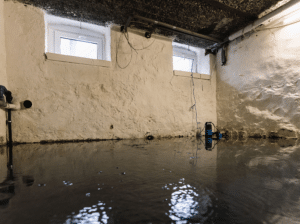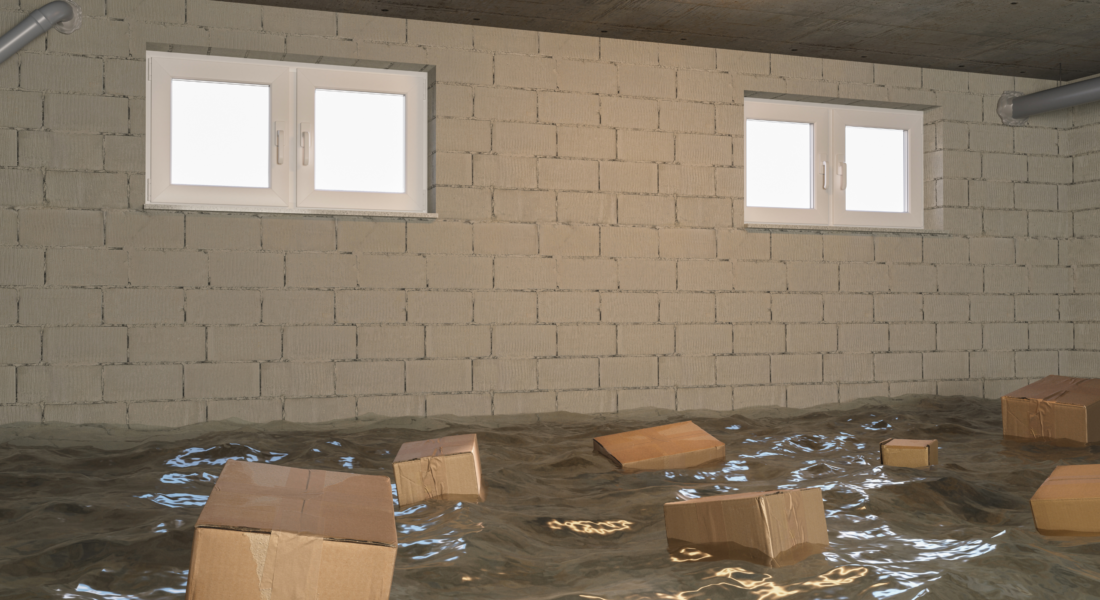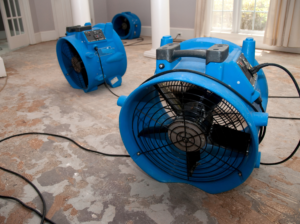Basement floods caused by heavy rain can wreak havoc on your property, leading to water damage, mold growth, and structural issues. In this blog, we’ll delve into effective strategies for preventing and mitigating basement floods during rainy weather, ensuring your home remains safe and dry.
Understanding the Causes of Basement Floods
Rainwater Infiltration
- Surface Water Runoff: Heavy rainfall can overwhelm drainage systems, causing surface water to seep into basements through cracks, windows, or foundation walls.
- Saturated Soil: Prolonged or intense rain saturates the soil around your home, increasing hydrostatic pressure and pushing water through basement walls or floors.
Poor Drainage Systems
- Clogged Gutters and Downspouts: Debris accumulation in gutters and downspouts impedes proper water flow, leading to water pooling around the foundation and potentially seeping into the basement.
- Inadequate Grading: Improper grading around the foundation directs water toward the basement instead of away from the home, exacerbating flood risks during heavy rain.
Preventive Measures for Basement Flood Protection
Maintaining Gutters and Downspouts
- Regular Cleaning: Clear gutters and downspouts of leaves, debris, and sediment to ensure unobstructed water flow away from the home.
- Downspout Extensions: Install downspout extensions to direct rainwater at least 5-10 feet away from the foundation, preventing water from pooling near the basement.
Foundation Waterproofing
- Seal Cracks and Gaps: Inspect basement walls and floors for cracks, gaps, or openings where water can infiltrate. Seal any identified vulnerabilities with waterproofing sealants or hydraulic cement.
- Exterior Waterproofing: Consider exterior waterproofing measures such as installing a waterproof membrane, French drains, or exterior drainage systems to divert water away from the foundation.
Sump Pump Installation and Maintenance
- Invest in a Sump Pump: Install a sump pump in the basement to efficiently remove excess water during flooding events. Ensure proper installation and regular maintenance to keep the sump pump in optimal working condition.
- Battery Backup: Install a battery backup system for the sump pump to ensure continued operation during power outages, which often occur during severe storms.
Responding to Basement Flood Emergencies
Immediate Action Steps
- Safety First: Prioritize safety by turning off electricity to the affected area to avoid electrical hazards. Avoid contact with standing water if electrical outlets or appliances are submerged.
- Water Extraction: Quickly remove standing water from the basement using pumps, wet vacuums, or professional water extraction services to minimize damage and prevent mold growth.
Professional Restoration Services
- Thorough Drying: Employ professional drying equipment such as industrial-grade dehumidifiers and air movers to thoroughly dry the basement and prevent moisture-related issues.
- Mold Remediation: Address mold growth promptly with professional mold remediation services to safeguard indoor air quality and prevent health hazards.
Conclusion
Basement floods resulting from heavy rain pose significant risks to your home’s integrity and your family’s safety. By implementing preventive measures such as maintaining gutters, waterproofing the foundation, and installing a sump pump, you can fortify your basement against flood damage. In the event of a basement flood emergency, prompt action and professional restoration services from 24 Hour Flood Pros can help mitigate damage and restore your home to its pre-flood condition. Stay proactive and prepared to combat basement floods, ensuring your home remains a safe and dry haven during rainy days.





